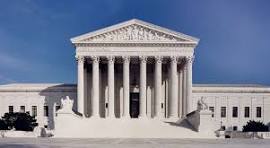Top Stories
Supreme Court Overrules Chevron Deference, Reshaping Federal Agency Power

The U.S. Supreme Court has overturned the landmark Chevron deference, fundamentally altering the landscape of federal regulatory power. The decision, delivered on June 28, 2024, by a 6-3 majority, dismantles a precedent that has allowed federal agencies considerable leeway in interpreting ambiguous statutes since 1984.
Key Details and Implications:
- Chevron Deference Overturned:
- The Chevron doctrine, established in Chevron U.S.A., Inc. v. Natural Resources Defense Council, Inc., required courts to defer to federal agencies’ reasonable interpretations of ambiguous laws. This decision, particularly in the cases Loper Bright Enterprises v. Raimondo and Relentless v. Department of Commerce, means courts will no longer automatically defer to agency expertise (Fierce Healthcare).
- Impact on Federal Agencies:
- This ruling significantly impacts the ability of agencies like the Environmental Protection Agency (EPA) and Centers for Medicare & Medicaid Services (CMS) to implement regulations. Without Chevron deference, these agencies may face increased judicial scrutiny and challenges to their regulatory actions, particularly on complex issues like environmental policies and healthcare regulations (Fierce Healthcare, Politico).
- Reactions and Analysis:
- Justice Neil Gorsuch, in his concurring opinion, emphasized the need for clear judicial oversight rather than deference to agency interpretations. The court’s decision reflects a broader conservative agenda to curtail the power of the administrative state (Fierce Healthcare).
- Critics argue this shift undermines the ability of specialized agencies to address nuanced regulatory issues, transferring significant interpretive power to the judiciary. This move could destabilize established regulatory frameworks and create uncertainty in various sectors, including environmental protection and public health (DNyuz, Politico).
- Future Legal Landscape:
- The decision sets a new precedent, indicating that federal agencies will now have to provide more detailed justifications for their regulations. This change is expected to lead to more litigation as regulated entities challenge agency rules more frequently, potentially slowing down the implementation of new policies.





